Aboriginal and Torres Strait Islander children and young people
Keeping connected to family, kin, community and culture while you’re in care is important, and it is your right.
When working with your child safety officer or living in your care arrangement, you should expect to feel welcome, safe, valued, included and respected.
What are my cultural rights?
All children in care have rights. As an Aboriginal child or a Torres Strait Islander child, you have unique cultural rights to make sure you stay connected to family and culture while in care. You have these rights by law, and Child Safety must uphold them.
Aboriginal and Torres Strait Islander Child Placement Principle
The Aboriginal and Torres Strait Islander Child Placement Principle recognises your right to be connected to your family, community, culture and country. Any time Child Safety makes a big decision that can change things in your life, they must do everything they can (to apply the principles), as soon as possible, to make sure you are safe and connected to your family, community, culture and country. This is referred to as making active efforts.
Charter of rights for a child in care
The charter of rights for children in care sets out the way children and young people in care are to be treated and looked after.
Under the charter, you have a right to be yourself, and if you are an Aboriginal child, a right to develop, maintain and enjoy a connection to Aboriginal tradition. If you are a Torres Strait Islander child, you have a right to develop, maintain and enjoy a connection to Island custom.
Human Rights
By law, your right to live as an Aboriginal or Torres Strait Islander person and to practice your culture is protected. This includes your right to:
- cultural identity
- language
- kinship ties
- relationship with land, water seas and the environment under traditional laws and customs.
Any time that Child Safety makes a decision about you, they must think about the impact of the decision on your human rights.
How can I be supported to participate in decisions?
You have a right to take part in decisions that have an impact on your life.
Your child safety officer will ask you if you would like to identify an independent person to help you participate in decisions. An independent person can help make sure that your voice is heard.
Child Safety may involve the local Family Participation Program to facilitate a family-led decision making process. The Family Participation Program is run by an Aboriginal and Torres Strait Islander Community Controlled Organisation. They can make a safe space, where you, your family and community (and sometimes Child Safety) can come together to make decisions.
What is delegated authority?
We are making changes to the way that decisions about you and your family may be made.
This means that some of the work usually led by Child Safety with you and your family may be led by an Aboriginal and Torres Strait Islander organisation.
For more information, you can watch Making decisions our way: What it means for your family or talk to your child safety officer.
What can I do if I am unhappy, or feel that my rights aren’t being met?
You have a right to tell somebody if there is something you are not happy about, or if you feel like your rights are not being met. Go to Making a complaint for more information.

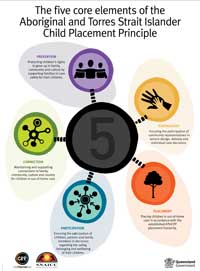
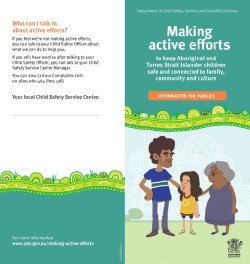
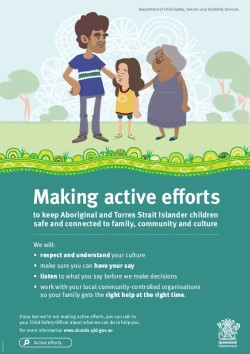
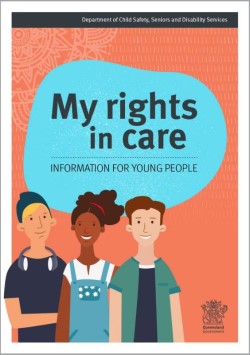
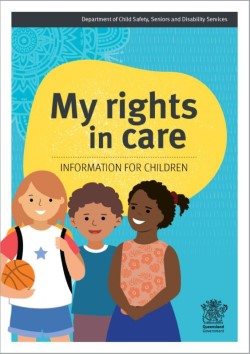
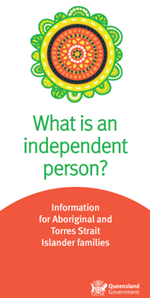
 This work is licensed under a Creative Commons Attribution 4.0 International (CC BY 4.0) licence
This work is licensed under a Creative Commons Attribution 4.0 International (CC BY 4.0) licence